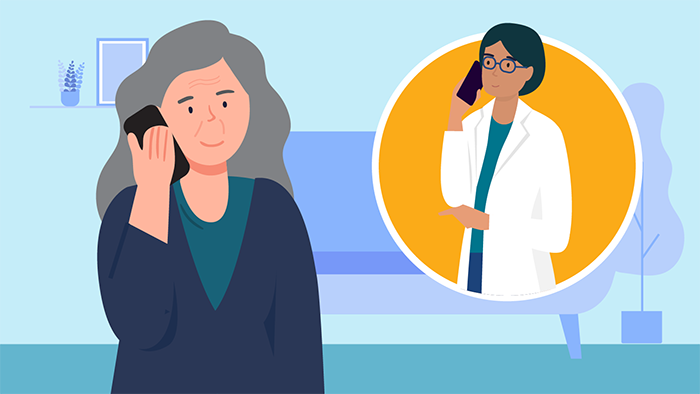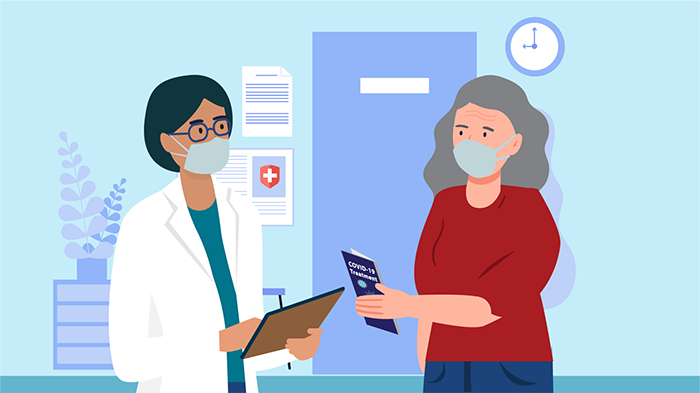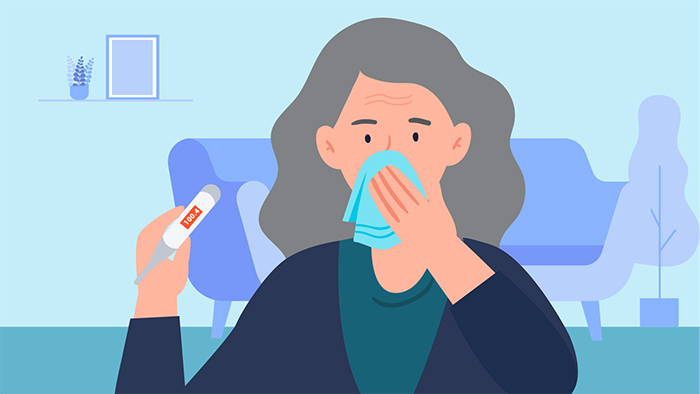Recommendations for Fully Vaccinated People
COVID-19 Homepage
COVID-19 Treatments and Medications
This page provides a treatment overview for the General Public.
For healthcare providers: Interim Clinical Considerations for COVID-19 Treatment in Outpatients
- If you have COVID-19 and are more likely to get very sick, treatments are available that can reduce your risk of hospitalization and death.
- Don’t delay: Treatment must be started within days after you first develop symptoms to be effective.
- Other medications can help reduce symptoms and help you manage your illness.
- The Treatment Locator (hhs.gov) can help you find a location that offers testing and treatment or a pharmacy where you can fill your prescription.
Treating COVID-19

If you have COVID-19 and are more likely to get very sick from COVID-19, treatments are available that can reduce your chances of being hospitalized or dying from the disease. Medications to treat COVID-19 must be prescribed by a healthcare provider and started as soon as possible after diagnosis to be effective. Contact a healthcare provider right away to determine if you are eligible for treatment, even if your symptoms are mild right now.
Don’t delay: Treatment must be started within days of when you first develop symptoms to be effective.
People who are more likely to get very sick include older adults (ages 50 years or more, with risk increasing with age), people who are unvaccinated, and people with certain medical conditions, such as chronic lung disease, heart disease, or a weakened immune system. Being vaccinated makes you much less likely to get very sick. Still, some vaccinated people, especially those ages 65 years or older or who have other risk factors for severe disease, may benefit from treatment if they get COVID-19. A healthcare provider will help decide which treatment, if any, is right for you. Check with your healthcare provider or pharmacist if you are taking other medications to make sure the COVID-19 treatments can be safely taken at the same time.
Treatments

There are several FDA-authorized or approved antiviral medications used to treat mild to moderate COVID-19 in people who are more likely to get very sick.
- Antiviral treatments target specific parts of the virus to stop it from multiplying in the body, helping to prevent severe illness and death.
The National Institutes of Health (NIH) provides COVID-19 Treatment Guidelines for healthcare providers to help them work with their patients and determine the best treatment options for them. Several options are available for treating COVID-19. They include:
Some treatments might have side effects or interact with other medications you are taking. Ask a healthcare provider if medications to treat COVID-19 are right for you. If you don’t have a healthcare provider, visit a Test to Treat location or contact your local community health center or health department.
If you are hospitalized, your healthcare provider might use other types of treatments, depending on how sick you are. These could include medications to treat the virus, reduce an overactive immune response, or treat COVID-19 complications.
Convalescent Plasma
Some people with COVID-19 who are immunocompromised or are receiving immunosuppressive treatment may benefit from a treatment called convalescent plasma. Your healthcare provider can help decide whether this treatment is right for you.
Watch ASL Video: Get Treatment for COVID-19
Managing COVID-19 symptoms

Most people with COVID-19 have mild illness and can recover at home. You can treat symptoms with over-the-counter medicines, such as acetaminophen (Tylenol) or ibuprofen (Motrin, Advil), to help you feel better.
Learn more about what to do if you are sick.
Click the button below or call 1-800-232-0233 (TTY 1-888-720-7489) to find a location that offers testing and treatment or a pharmacy where you can fill your prescription.
View LocationsPreventing COVID-19
COVID-19 vaccines
COVID-19 vaccines available in the United States effectively protect people from getting seriously ill, being hospitalized, and even dying. As with vaccines for other diseases, you are protected best when you stay up to date. CDC recommends that everyone who is eligible stay up to date on their COVID-19 vaccines.
To find COVID-19 vaccine locations near you: Search vaccines.gov, text your ZIP code to 438829, or call 1-800-232-0233.
The right medications for COVID-19 can help. People have been seriously harmed and even died after taking products not approved for use to treat or prevent COVID-19, even products approved or prescribed for other uses. Talk to a healthcare provider about taking medications to treat COVID-19.
General Treatment Resources
- COVID-19 Treatment Guidelines: What’s New
- Coronavirus (COVID-19) Drugs
- Therapeutic Management of Nonhospitalized Adults With COVID-19
- COVID-19 Therapeutics Locator
Oral Antiviral Treatment Resources